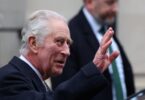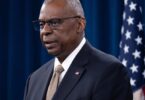BRUSSELS (Agencies): European Union foreign-policy chief Josep Borrell says the EU needs to “push back, constrain, and engage” Moscow.
Speaking on June 16 shortly before Russian President Vladimir Putin and U.S. President Joe Biden began a summit in Geneva, Borrell told reporters in Brussels that “a renewed partnership, allowing us to realize the full potential of a close cooperation with Russia, is a distant prospect.”
“The EU, therefore, needs to be realistic and prepare for a further downturn of our relation with Russia,” Borrell said.
He made the remarks while presenting a report detailing a proposed strategy to build a “more predictable and stable relationship” with the Kremlin.
EU leaders will debate the report at a summit next week as they seek a common approach on Russia amid divisions between some EU members over how to deal with Russian President Vladimir Putin.
The proposed strategy includes details on future relations between Brussels and the six former Soviet republics in the EU’s Eastern Partnership program — Armenia, Azerbaijan, Belarus, Georgia, Moldova, and Ukraine.
It says the EU “firmly rejects the Russian pursuit of a privileged sphere of influence” over those countries.
“The Eastern partners have a full, sovereign right to shape the breadth and depth of their relations with the EU and other international players freely,” it says.
The report also notes that the Russian government “continues its confrontational policy, employing soft and hard policy tools to exert pressure.”
As a result, it says, the EU will continue to “strengthen the Eastern partners’ resilience via bilateral agreements” that include EU Association Agreements and other trade treaties.
It also says it will also continue “important financial support” to the Eastern Partnership countries and others with a focus on “necessary reforms in the economy, governance and the rule of law, green and digital transformations, and inclusive societies.”
Relations between Russia and the EU have hit a new low since the EU imposed sanctions against Moscow over the arrest of Kremlin critic Aleksei Navalny and Russian authorities responded by targeting officials in Brussels.
“Time and again, the European Union has demonstrated unity despite attempts by Russia to divide us,” Borrell said. “This unity remains our biggest asset and needs to be even more robust.”






